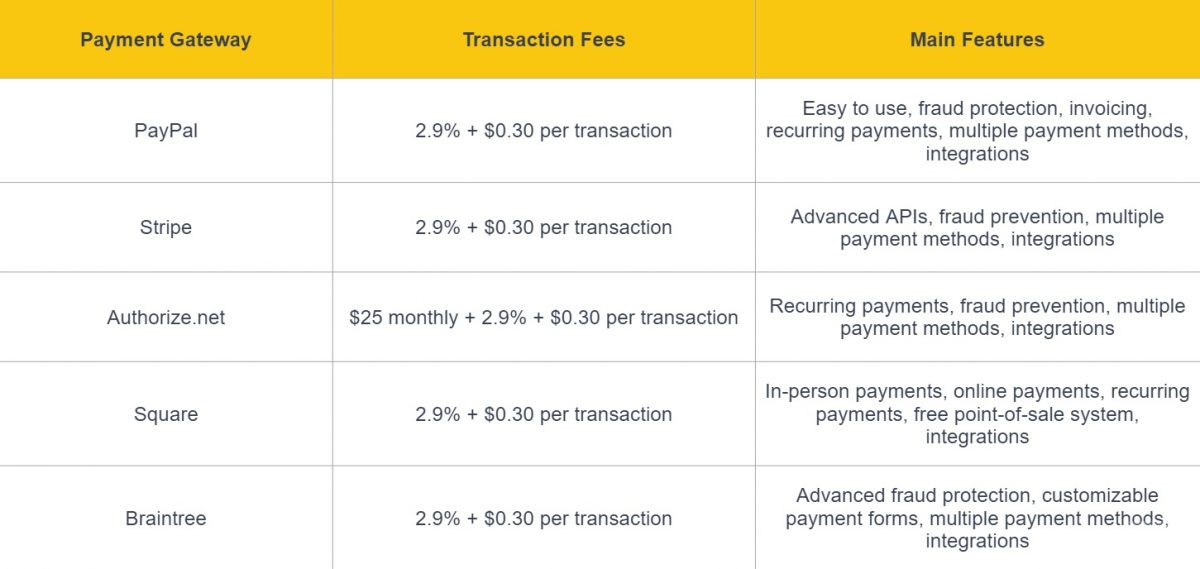What is a Payment Gateway?


A payment gateway is a technology solution that enables online businesses to accept and process electronic payments from customers.
Importance of payment gateway in vacation rentals and hosting: essential for accepting and processing payments from guests, ensuring secure and reliable transactions, and managing financial records
How Payment Gateways Work
A payment gateway’s role in processing transactions is to act as a mediator between the guest’s payment method and the vacation rental or hosting business’s bank account. The payment gateway is responsible for facilitating the transfer of funds securely and efficiently.
The payment gateway’s process usually involves three stages:
- authorization,
- capture,
- and settlement.
Overview of the payment gateway process
- Authorization: This is the first stage of the payment gateway process, and it involves verifying the guest’s payment information. During this stage, the payment gateway checks to ensure that the guest has the necessary funds available and that the payment method is valid. This helps to prevent fraudulent transactions and ensures that the payment information is accurate.
- Capture: The second stage of the payment gateway process is the capture stage. Once the payment is authorized, the payment gateway transfers the funds from the guest’s account to the business’s account. The payment gateway deducts transaction fees and any other applicable charges, such as currency conversion fees or chargeback fees, during this stage.
- Settlement: The final stage of the payment gateway process is the settlement. In this stage, the payment gateway deposits the funds into the business’s bank account. This step usually takes 1-2 business days to complete, depending on the payment gateway and the business’s bank. Once the funds are settled, the business can access the money and use it for various purposes, such as paying bills, purchasing inventory, or reinvesting in the business.
Overall, the payment gateway process is designed to make it easy for businesses to accept and process electronic payments from customers. By verifying payment information, transferring funds securely, and depositing funds into the business’s bank account, payment gateways help to streamline the payment process and make it more efficient.
A payment gateway’s role in fraud prevention and security
In addition to processing transactions, payment gateways also play a critical role in fraud prevention and security. Electronic payments are vulnerable to fraud, and payment gateways employ various security measures to ensure that transactions are legitimate and that sensitive data is protected.
One of the primary security measures used by payment gateways is encryption. Encryption involves encoding data so that it is unreadable to unauthorized parties. Payment gateways typically use SSL (Secure Sockets Layer) encryption to protect sensitive data, such as credit card numbers and personal information, during transmission.
Another security measure used by payment gateways is tokenization. Tokenization involves replacing sensitive data, such as credit card numbers, with a unique identifier or token. This helps to protect sensitive data from being stolen or compromised in the event of a data breach.
Payment gateways may also use 3D Secure, a security protocol developed by Visa and Mastercard, to prevent fraudulent transactions. 3D Secure involves an additional authentication step that requires the cardholder to enter a password or PIN to verify their identity. This extra layer of security helps to prevent fraudulent transactions and protect businesses from chargebacks and other types of financial losses.
Overall, payment gateways play a critical role in fraud prevention and security. By employing security measures such as encryption, tokenization, and 3D Secure, payment gateways help to protect sensitive data and prevent fraudulent transactions, ensuring that businesses can accept electronic payments with confidence.
Payment Gateway Options for Vacation Rentals and Hosting
A Quick Comparison

PayPal
Pros:
- Easy to set up and use
- Offers a range of features such as fraud protection and chargeback management
- Offers both online and offline payment options
- Has a large user base, making it a recognizable and trusted payment method for customers
Cons:
- Higher transaction fees compared to other payment gateways
- Limited customization options for payment forms and checkout pages
Stripe
Pros:
- Developer-friendly platform with robust APIs and customization options
- Advanced fraud prevention features and 3D Secure support
- Easy to set up and use
- Transparent pricing with no monthly fees or setup fees
Cons:
- Some users report issues with account holds and payouts
- Some users may find the interface and documentation to be less user-friendly than other payment gateways
Authorize.net
Pros:
- Offers a range of features, including recurring payments, fraud prevention tools, and support for multiple payment methods
- Easy to use and set up
- Extensive library of integrations with various e-commerce platforms
- Large user base and trusted brand name
Cons:
- Can be more expensive than other payment gateways, especially for businesses with higher transaction volumes
- Some users report issues with customer support and technical issues
Square
Pros:
- Offers a range of features, including online payments, in-person payments, and recurring payments
- Easy to use and set up, with no monthly fees or setup fees
- Offers a free point-of-sale system and a range of other tools to help businesses manage their payments
- Has a large user base and a recognizable brand name
Cons:
- Some users report issues with account holds and payouts
- May not be as customizable as other payment gateways
Braintree
Pros:
- Offers a range of features, including support for multiple payment methods, advanced fraud protection, and customizable payment forms
- Easy to use and set up, with transparent pricing and no setup fees
- Offers a developer-friendly platform with robust APIs and extensive documentation
- Offers a range of integrations with e-commerce platforms
Cons:
- Some users report issues with account holds and payouts
- Higher transaction fees compared to some other payment gateways
Ultimately, the choice of payment gateway will depend on the specific needs and priorities of the business. It’s important to consider factors such as transaction fees, features, ease of use, and customer support when making a decision.
Best Practices for Using Payment Gateways in Vacation Rentals and Hosting
- Clear and detailed descriptions: Provide clear and detailed descriptions of the rental or hosting service, including any amenities, policies, and fees. This helps to prevent misunderstandings and disputes over payment.
- Timely communication: Communicate regularly with guests before, during, and after their stay to ensure that they are satisfied with the service and that any issues are resolved promptly. This can help prevent chargebacks and disputes.
- Easy cancellation and refund policies: Have easy-to-understand cancellation and refund policies that are clearly communicated to guests. This can help prevent disputes and chargebacks.
- Maximize payment gateway security: Protect sensitive data by using strong passwords, regularly updating software, and maintaining PCI compliance. A payment processor or merchant account can also help maximize security.
- Use a business bank account: Use a separate business bank account for payment processing and avoid commingling funds with personal accounts. This can help prevent confusion and disputes over payment.
- Accept credit or debit card payments: Accepting credit or debit card payments can make the payment process easier and more convenient for guests.
- Ensure regulatory compliance: Vacation rental and hosting businesses must comply with various regulations, such as PCI DSS and GDPR, regarding data privacy, security, and processing of electronic payments. Ensure that your payment processing is compliant with these regulations to avoid penalties and legal issues.
By following these best practices, vacation rental and hosting businesses can help ensure a smooth payment process and minimize the risk of disputes and chargebacks.
With iGMS, effortless vacation rental management is at your fingertips. Its intuitive platform handles bookings, guest communications, and team tasks efficiently. Ideal for solo hosts or large companies, iGMS transforms your rental operations while elevating the guest experience. Experience the iGMS difference.








